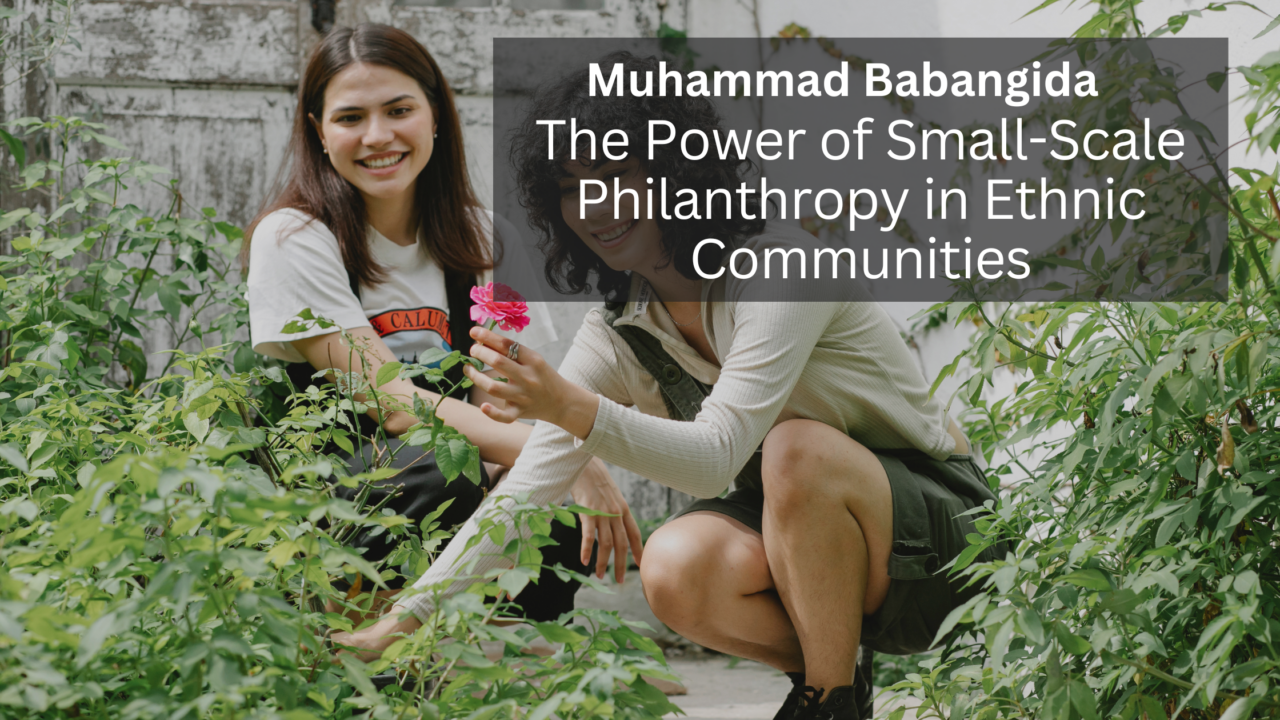Philanthropy is often associated with large-scale donations and grand initiatives, but small-scale giving within ethnic communities can have a profound and lasting impact. In many ethnic communities, the act of giving back is deeply rooted in cultural traditions, with an emphasis on supporting one’s own, fostering solidarity, and addressing immediate needs. Small-scale philanthropy, whether through grassroots efforts, local fundraising, or volunteerism, plays a crucial role in strengthening community ties, providing essential support, and creating lasting change.
1. Addressing Immediate and Local Needs
Small-scale philanthropy allows ethnic communities to respond directly to the unique challenges they face. Whether it’s supporting individuals dealing with financial hardship, helping fund local education initiatives, or addressing health disparities, these community-driven efforts tackle immediate needs in a way that is both personal and impactful. Donations and support are often directed to causes that directly affect community members, such as local businesses, immigrant support services, or emergency relief for families. By focusing on local needs, small-scale philanthropy can create tangible change and offer solutions that are more in tune with the community’s realities.
2. Strengthening Cultural Identity and Solidarity
In many ethnic communities, philanthropy is not just about financial giving but also about fostering a sense of belonging and unity. Giving back is often seen as an extension of cultural values, such as mutual support, respect for elders, and collective well-being. Small-scale philanthropy helps to maintain and strengthen cultural identity, as it reinforces the importance of supporting one’s own. By coming together for a common cause—whether it’s a cultural festival, an educational scholarship, or a health clinic—community members reinforce solidarity and build stronger ties that transcend generations.
3. Encouraging Civic Engagement and Volunteerism
Small-scale philanthropy fosters a spirit of civic engagement, encouraging community members to participate in charitable efforts beyond monetary donations. Volunteering time, sharing skills, and supporting local events are common ways in which people contribute to their communities. This hands-on involvement creates opportunities for individuals to collaborate and contribute in ways that are meaningful to them. As a result, the sense of empowerment and pride in helping others grows, creating a cycle of giving and community involvement that strengthens the fabric of society.
4. Promoting Sustainable Impact
While large-scale philanthropic organizations often focus on broad initiatives, small-scale philanthropy within ethnic communities is often more nimble and able to adapt quickly to changing circumstances. By focusing on targeted efforts, these initiatives can lead to long-term impact through sustainable programs that directly benefit local populations. Examples include microloans to small business owners, after-school programs for children, or health education campaigns focused on preventing common diseases in the community. These grassroots efforts have the potential to create lasting change that ripples out, inspiring other communities to take similar actions.
5. Building Trust and Social Capital
Small-scale philanthropy also builds trust within ethnic communities, as it is often community members who are the ones donating, organizing, and benefiting from these efforts. This trust creates stronger social networks, allowing for greater collaboration and mutual support. When people feel that they can rely on one another, they are more likely to engage in collective problem-solving and contribute their time, resources, or expertise to a cause. This sense of social capital is invaluable in times of crisis, as it strengthens the community’s ability to come together in times of need.
Conclusion
Small-scale philanthropy in ethnic communities is a powerful force for change. It addresses immediate needs, strengthens cultural identity, encourages civic engagement, and creates sustainable impact. By focusing on local efforts, these initiatives foster trust and solidarity, reinforcing the importance of collective well-being. Whether through financial contributions, volunteer work, or community-driven initiatives, small-scale philanthropy can create meaningful change, proving that even the smallest acts of giving can have an enormous impact on the lives of individuals and the community as a whole.
